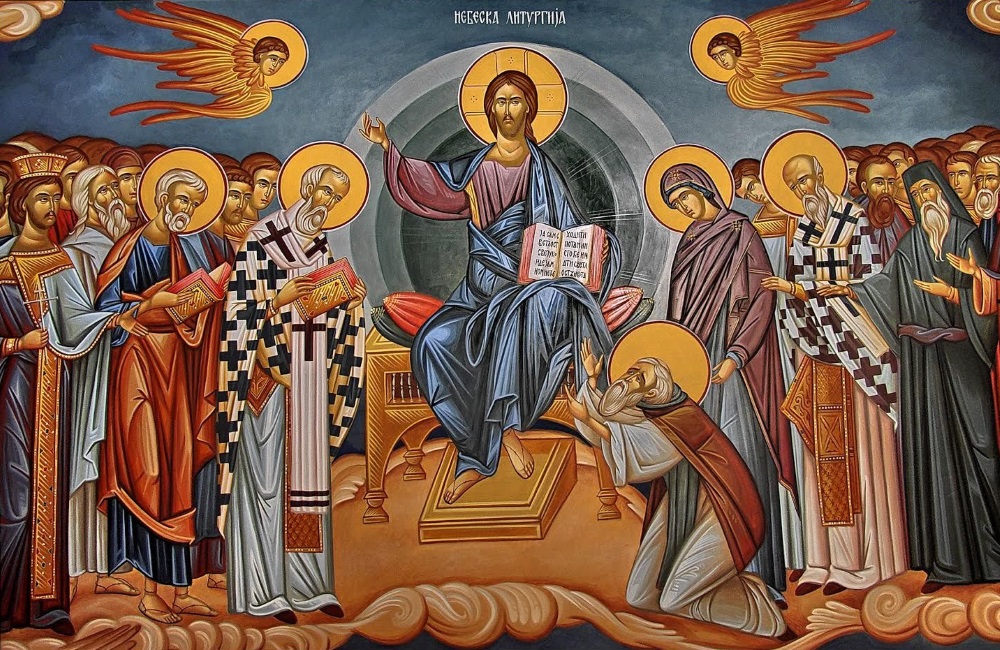Saint Maximus, Bishop of Turin in Italy – Sermon on the Anniversary of the Saints.

Sermon 16. On the Anniversary of the Saints.
1. If the weakness of my body should continue for as long as I have to speak and you ought to listen, we would all in fact be excused – I from teaching the commandment and you from keeping it. But because we are smitten with sickness, so that we are unable to say what we ought, let the devotion of the mind excuse us whom the demand of preaching does not. That is to say, even if we cease from the praises of the Lord with our tongue, still let us bless His wonders with works of faith; if we do not speak His glory in words, let us pursue His grace in deeds, since deeds are prior to words. For the Lord says in the Gospel: Whoever does thus and teaches thus will he called great in the kingdom of heaven (Matt. 5.19). You see, then, that the deed precedes and teaching follows, because to act well is the first way of teaching. For, when words fail, a work of great goodness itself teaches a person as long as it is visible, so that even if it does not excite the ears by a sound it still pricks hearts with its power. For who, on seeing a good action, does not rejoice, admire and imitate it, does not use it as an example and learn from it as if from a silent teacher? Deeds precede words, then, and in fact without deeds words profit nothing. And this is how the Lord wished that teaching should be done, lest without good work there be just the useless and superstitious throwing about of words.
2. We are taught better by deeds, therefore, than by words. And even if the holy martyrs arc silent, they teach us by the power of what they have done; even if they do not speak, they persuade by the suffering of their martyrdom. Thus, although a skilful speaker may teach me in an eloquent manner, nonetheless I learn what is useful for me more by the example of the saints than by the mouthing of words. My eyes persuade me rapidly because they see – more so than my ears, which cannot absorb what passes them by. For what is heard falls quickly into oblivion, but what occurs before the eyes is always present in contemplation. For who does not see at every hour and moment how the blessed martyrs underwent different tortures for the sake of Christ’s name and triumphed somehow over the punishments themselves? The more they suffered, the more utterly victorious they believed they were. For a persecutor’s sentence is a martyr’s victory, as it is written: And you will conquer when you are judged (Ps. 51.4). For when a martyr is judged and condemned, then he conquers and overthrows. By such a judgment he is not doomed to death but set free for rest, and it is most evident from this that to have conquered is not to have perished.
3. It is clear, then, that the holy martyrs teach more by their suffering than by their voice, although suffering itself is not without a voice. For we read that their souls cry out from under the altar of God and say: When, holy and faithful one, will you take vengeance on our blood (Rev. 6.9-10). And God says to Cain with reference to Abel’s blood: The voice of your brother’s blood cries out (Gen. 4.10.). Innocent blood that has been shed is said to cry out not by words but by its very existence. And thus it is that the souls of the holy martyrs cry out, as they commend their own faithfulness and innocence to our thoughts by their suffering.
The Sermons of St. Maximus of Turin, trans. by B. Ramsey, New York 1989, p. 40-42.
27.06.2021
